11 best milk alternatives to substitute for dairy
There are more milk alternatives available than ever before—which ones are right for you?


Milk alternatives are no longer confined to the shelves of health food stores, or reserved exclusively for those following a vegan diet. More and more people are switching out their classic cow's milk for plant-based options every day. But with so many brands to choose from, it can be confusing to know which one is best for you.
The switch to non-dairy milk alternatives has come thick and fast, the Vegan Society says, with the plant milk market set to more than double in worth by the end of 2025 - shooting up to an impressive $41,061 million. But why?
It might be the wider range of tastes and choices in dairy alternatives, making them a contender in the top coffee trends every year and perfect to use in healthy coffee alternatives. Environmentally they're better too, as they tend to create fewer greenhouse gases compared to cow's milk. If you want to try it for yourself, here’s our rundown of the best choices in terms of health, and what you need to do before making a switch to milk alternatives for good.
What to look for in milk alternatives
While there are plenty of brands and types of alternative milk to choose from, not all are made equal. When compared to cow's milk, some can be seriously lacking in nutrients, so always speak to your doctor if you have any concerns.
Then when buying your pick of the best milk alternatives, consider the following:
- Go for alternatives milks with as few ingredients as possible
- Pick a milk that is "unsweetened" or "0g added sugar"
- There should be a minimum of 7g of protein per serving
- Choose milk with less than 140mg of sodium per serving
- Go for milk alternatives with calcium, vitamin D, and vitamin B12
- Pick milk with limited saturated fat
The 16 best milk alternatives according to health experts
Here are some of the most well-known milk alternatives on the market. You’ll probably have to experiment with a few types and brands to find ones that work for you, or you may decide to have one type in your coffee and use another for cereals, baking, and cooking.
1. Soy milk
Soy milk is arguably the most famous plant milk, having reached the dairy-alternative market in the 1980s. It has a creamy and light, slightly nutty taste, making it a great for those who want an alternative flavor in their milk.
Sign up for the woman&home newsletter
Sign up to our free daily email for the latest royal and entertainment news, interesting opinion, expert advice on styling and beauty trends, and no-nonsense guides to the health and wellness questions you want answered.
"It's delicious in so many drinks, including coffee, and ideal for stirring into rich sauces or risottos," says nutritionist Jenna Hope.
When compared to other milk like cow's and almond, it's also significantly more sustainable. Research from the University of Oxford suggests that a liter of cow's milk uses almost two times as much land and creates almost double the emissions as a standard liter of soymilk.
Health benefits: Soya is popular with those experiencing symptoms of perimenopause thanks to its isoflavones. The British Dietetic Association confirms that 2-3 servings of soy products a day (equivalent to two glasses of soya milk or 100g soya mince) may help those looking for how to calm hot flashes, as well as lower cholesterol and protect the heart after menopause. It’s regarded as the most nutritionally similar to cow’s milk and is lower in calories, sugars, and fat than many other milk alternatives.
“It’s also higher in protein than many of the other plant milk as it contains around 3.5g of protein per 100ml,” says Hope. “Additionally, it contains calcium, iron, magnesium and potassium.” It's no surprise that these minerals are in many menopause supplements.
Dr Federica Amati, a nutritionist and chief nutrition scientist for Indi Supplements, adds, “It has a great nutrient profile but you must obviously avoid it if you have a soy allergy.”
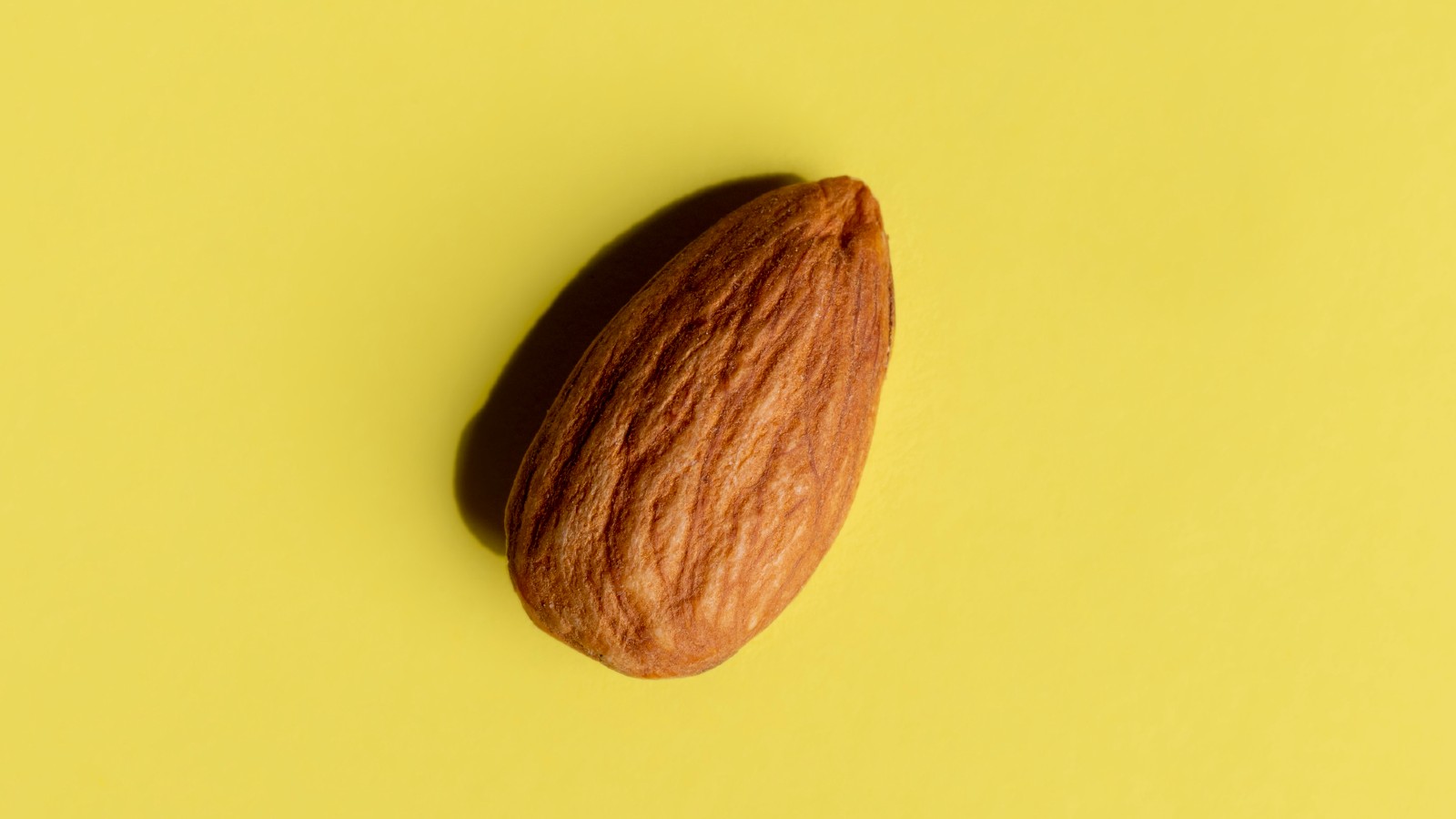
2. Almond milk
For those of us who love the subtle sweet taste of almonds, this milk alternative is perfect for lattes and smoothies. Its moderate flavor makes it a versatile option in porridge or on cereals, too. “However, from an eco perspective, almonds require more water and therefore may not be the most environmentally friendly option,” says Hope.
Health benefits: Almonds are a great source of vegan protein. “Almond milk is higher in protein than oat milk and contains around 1g of protein per 100ml. Additionally, it’s lower in calories than oat milk and if you buy a fortified version it can be a nutrient-dense option,” says Hope.
“But when you’re looking for fortified plant milks ensure they contain a minimum of calcium, vitamin B12 and vitamin D,” she warns.
Unfortified, unsweetened almond milk, for example, tends to be made up of spring water and less than 10% nuts. It's also one of the lowest in calories and because of high protein count, it's one of the best foods for weight loss.
3. Rice milk
“Rice milk tends to be highest in sugar and provides a mild, sweet flavor which can sometimes be overpowering,” explains Hope. “Due to the sweetness, it’s best used in baking or hot chocolates to reduce added sugars,” she says.
Health benefits: It’s low in saturated fat and - if fortified - is rich in calcium and B vitamins such as B2, along with vitamin D. This makes it a good choice for anyone suffering from a vitamin B deficiency, or generally looking to up their intake. Check the label though, brands often add sweeteners to counteract the bland taste.
When it comes to calories though, rice milk is one of the highest and it has less protein than other options. It's also not suitable for young children, says Dr Amati.
"Rice milk shouldn't be given to young children," she says. "The high arsenic content makes this dangerous for under 5s."
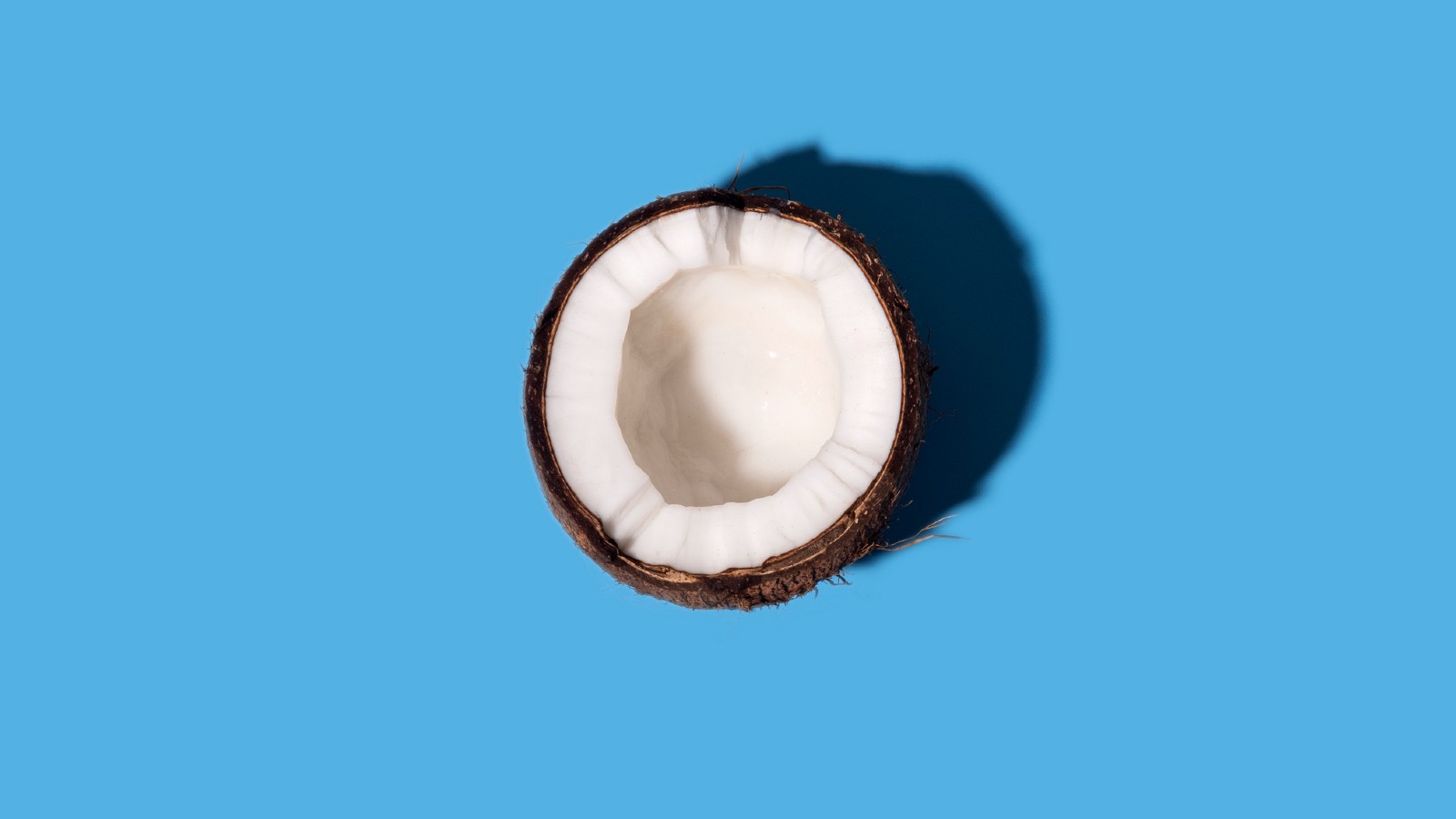
4. Coconut milk
Not the same as the coconut milk used in Asian cuisine, this dairy-free alternative is made from real coconut and has added vitamins and calcium normally. It has a more watery consistency than the milk you’d cook with but more substance than coconut water. If you like coconut, you’ll love the taste. “The subtle coconut flavor makes it ideal for smoothies,” says Hope. It’s also good in porridge, lattes, and milkshakes, and it can be used in baking.
Health benefits: “It’s lower in calories and protein, but has higher levels of saturated fat than other plant-based options, albeit not particularly high,” says Hope.
“Coconut milk often contains rice to increase the sweetness,” she adds. “As a result, it can increase the total sugars within the product.
It’s also higher in carbohydrates than some other milks, adds Dr Amati. While this shouldn't really be a concern for many people, if you're following a low-carb plan like the keto diet plan, for instance, it may not be suitable. "Opt for fortified versions and avoid brands with added sugar," she says.
5. Hemp milk
“Relatively environmentally friendly as it requires less water for production,” says Hope. Hemp milk is also free from soy, gluten, and lactose, making it an excellent choice for those with allergies.
A good substitute for cow’s milk, it tastes a little nutty and earthy. “Because it’s lower in sugar it works well in more savory dishes, too,” says Hope.
Health benefits: “This is packed with plant proteins, healthy fats like omega-3 and omega-6 fatty acids, and minerals,” says nutrition expert Mina Khan, founder of Formulate Health.
"While it's from the same plant that produces marijuana, it only contains trace amounts of the psychoactive compound THC. Highly nutritious, with more protein and healthy fats than other plant-based milk, it has fewer carbs and calories than cow’s milk," she says.

6. Cashew milk
If cashews are essential in your snack pack then it's likely you'll enjoy cashew milk as one of the milk alternatives. The texture of cashew milk suits coffee, smoothies, cereal, and bakes. It tastes less nutty than other nut milk, but is creamier and sweeter, so if you don’t take sugar avoid this in drinks - but do include it in a creamy curry.
As a crop, it’s a mixed bag ecologically. “Environmentally, cashews require significant amounts of water but their trees also absorb carbon dioxide,” explains Hope. “Cashews require transportation as they’re only grown in tropical countries and therefore it’s a hit and miss on the environmental aspect.”
Health benefits: “Made from whole cashews and water, this dairy and lactose-free milk alternative contains healthy unsaturated fats, several vitamins and minerals, and protein,” says Khan. It’s also relatively low in calories.
Khan adds, “There are no naturally occurring sugars and it’s free of cholesterol and saturated fats.”
7. Oat Milk
This is one of the most popular - and ubiquitous - milk alternatives. “It’s also another option with lower water requirements, making it an environmentally friendly milk,” says Hope.
Its sweetness and creaminess is delicious in all types of coffee as well as alternatives like matcha or chai. "It's also the perfect nut-free alternative for adding to baked recipes and porridge," says Hope. "And if you like getting the benefits of cinnamon by adding a sprinkle on your morning porridge, oat milk complements this super-spice perfectly."
Health benefits: Higher in carbs and calories than some other milk, you’re better off buying a fortified version to reap the health benefits. While brands vary, many contain vitamins B12 and D, as well as calcium and iodine. “It’s also naturally sweet, which means it contains sugars,” says Hope.
It won’t be gluten-free unless stated on the carton though, so it isn’t suitable for everyone.
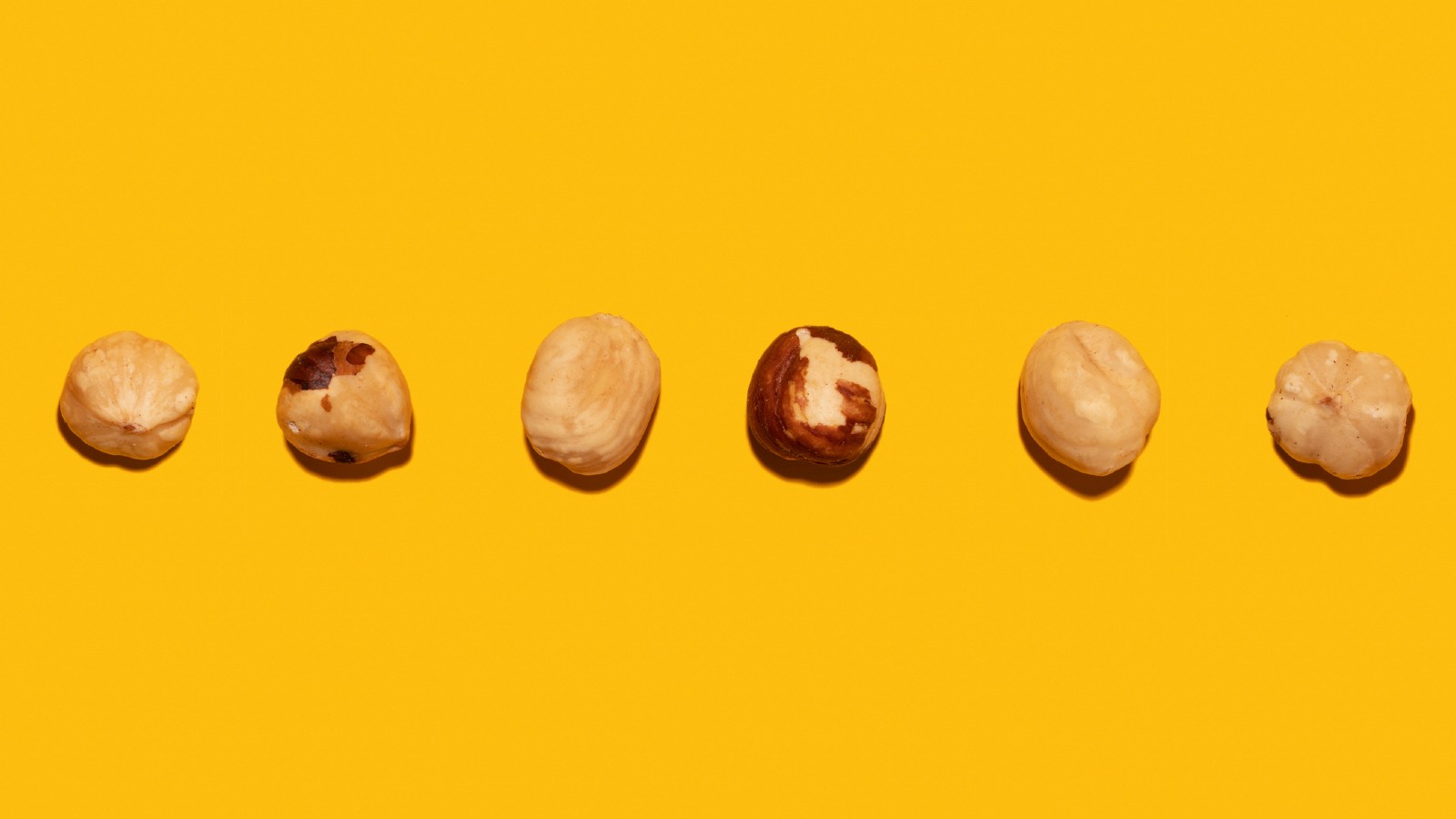
8. Hazelnut milk
“For any hot chocolate lover, hazelnut milk is a dreamy addition,” says Hope. Or try it in a chocolate milkshake. You can also use it in baking and other recipes that require added sweetness.
Health benefits: Naturally low in saturated fat, and usually fortified with calcium and vitamins B2, B12, and D, this lactose-free, gluten-free and soy-free option is a richer alternative to almond milk. As a result, it contains more calories, though less than soya milk.
“Hazelnut milk is often packed with rice, which also increases the sugar content,” says Hope. "This is to thicken the consistency of the milk."
9. Pea milk
Pea milk has a mild taste and a silky texture, which works in hot drinks or in cooking, such as chocolate pud, shakes and pasta sauces.
What’s more, “pea milk is an environmentally friendly option as it produces far less greenhouse gases than nuts,” says Hope.
Health benefits: “The key ingredient is yellow split peas, which are rich in the amino acid lysine, and iron,” says Khan.
If you're interested in the benefits of protein powder then it's worth considering pea milk as an option. “It’s also quite high in protein and in fact, it’s one of best plant milks for protein content. Most pea milk will also be fortified in vitamins A, D, calcium and phosphate, which are essential for bone growth, energy and muscle and nerve function."
Some brands also contain iodine and potassium, making pea milk one of the best milk alternatives to help prevent a nutrient deficiency.
“It can contain a variety of additives and sugars, though, so check the label before buying,” says Hope.
10. Potato milk
This creamy, slightly sweet milk doesn’t taste like potatoes (thankfully). “And it has been said to be one of the most environmentally friendly options,” states Hope. It goes well in coffee, tea and smoothies - froth the unsweetened version for skinny lattes and cappuccinos. You can use it in cooking or in cereal, too.
Health benefits: “A blend of emulsified boiled potatoes and rapeseed oil, the DUG brand, for example, is full of vitamins and minerals,” explains Khan. This includes key vitamins found in immunity supplements such as vitamin D, A, C, E, K, and seven B vitamins, plus calcium and iron.
It also has a slightly higher protein content than oat milk, says Hope.
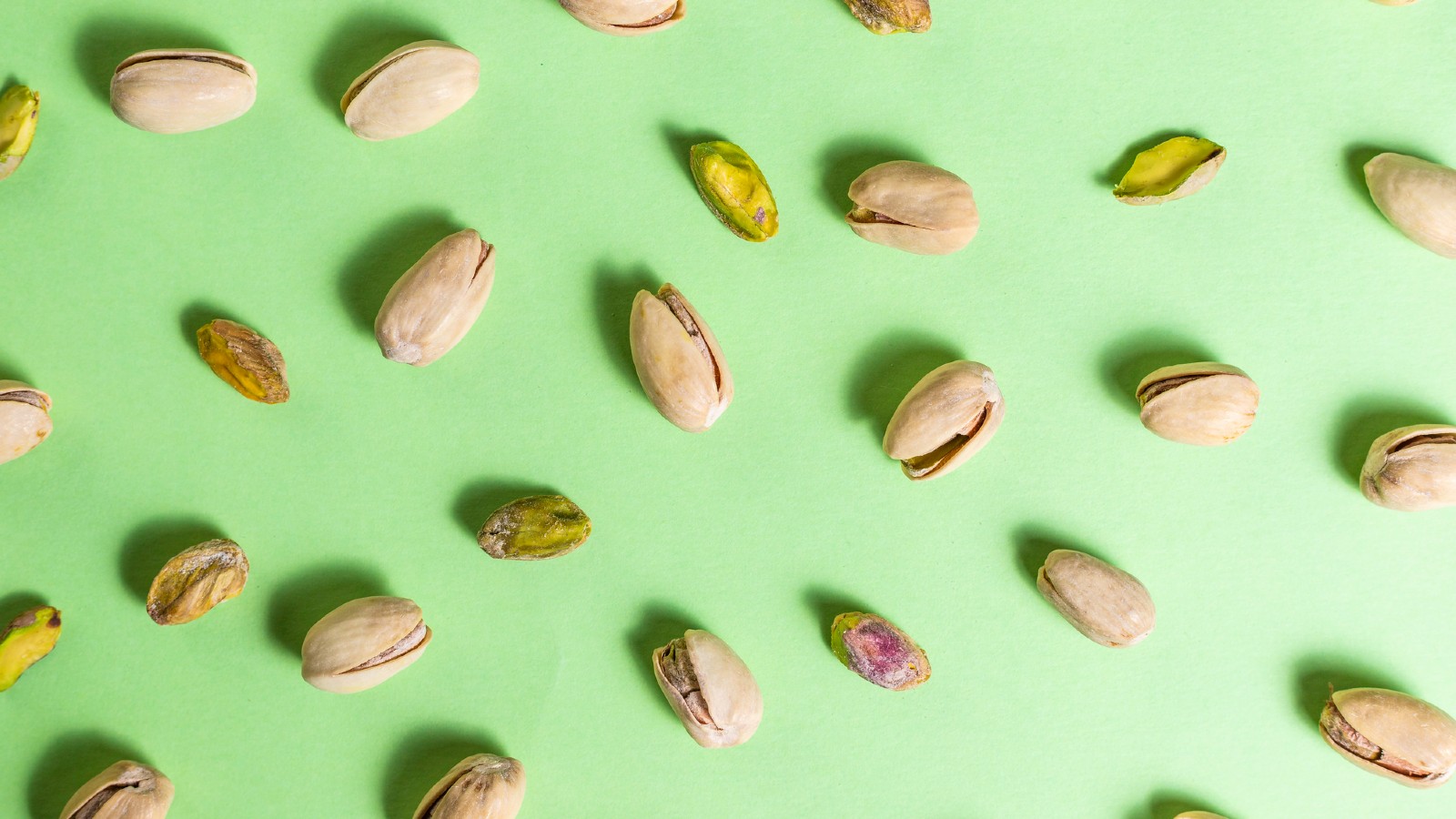
11. Pistachio milk
Lactose- and gluten-free, and lower in sugar and calories than oat milk, pistachio milk tastes mild yet rich and sweet, making it perfect for oatmeal or chai tea.
“And it uses less water than almond milk during production,” says Hope. As a report by All Plants says, “Pistachios are a great deal more sustainable: according to UNESCO, in California, it takes 97 gallons of water (around 368 litres) to make one ounce of almonds, whereas pistachios use 75% less for the same amount."
Health benefits: Pistachio milk is one of the better plant milks for protein intake, although - because it’s less readily available - it tends to be more expensive.
“Commonly fortified with vitamin B12 and calcium, it contains monounsaturated fatty acids which are good for the heart. It's rich in copper and magnesium, which can improve bowel function,” says Khan. “It has more potassium than other milk alternatives.”
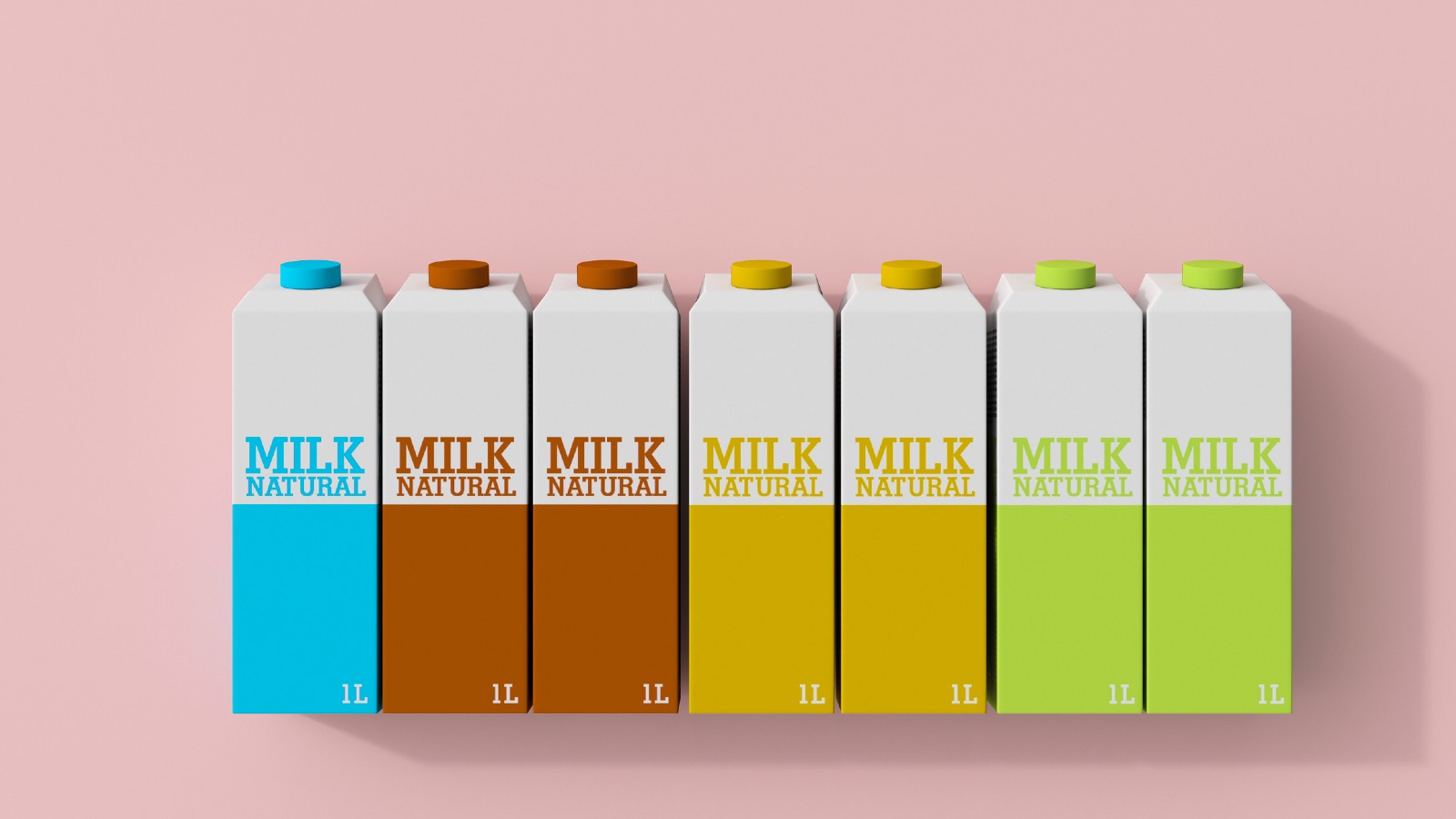
Are milk alternatives better for you?
“Milk alternatives tend to have fewer calories, many have less fat and more water content than dairy milk, and many are fortified with other vitamins and nutrients not found in cow’s milk,” Khan explains.
Milk alternatives are also great for people who are lactose intolerant. “Lactose can aggravate certain conditions, such as inflammatory bowel syndrome and Crohn’s disease,” says Khan.
What dairy-free milk options often lack is calcium, which we require to keep our bones and teeth strong. According to the Association of UK Dietitians adult women require 700mg a day, breastfeeding women need 1,250mg and post-menopausal women 1,200mg.
“Check the fat content, too,” advises Khan. “This is a pitfall that’s easy to miss when it comes to plant-based alternatives to milk, as many need oil to help the liquid bind together, meaning more overall fat content,” she says. “Even if these are good fats it’s still important to monitor your intake.”
You may have already switched to healthy flour alternatives or swapped your usual rice for ancient grains instead, so it might seem natural now to try dairy alternatives. But as with many lifestyle changes, it's important to know how to swap out healthily.
How to stay healthy when dropping dairy
“If you stop having cow’s milk there is a risk of nutrient deficiencies if you aren’t ensuring the alternatives are well fortified,” warns Hope. “Where possible, ensure plant milks are unsweetened to reduce total sugar intake and are fortified with key nutrients such as calcium, vitamin D, and vitamin B12.” It’s also worth keeping in mind that while nuts are high in protein, nut milks aren’t as protein-rich as cow’s milk because they’re diluted.
Don’t forget iodine either, a key mineral for regulating thyroid function. “Additionally, iodine can become a high-risk nutrient as its richest sources include cow’s milk, dairy products, and white fish,” says Hope. “However, there are limited milks which are fortified with iodine.”
The key to buying milk alternatives is to opt for unsweetened versions fortified with vitamins and minerals. Brands vary in content—some are organic, some are fortified, some have more or less sugars, protein or carbs, and some have a lower carbon footprint than their competitors, so always check the label.”

The eco-benefits of milk alternatives
“Milk has an enormous carbon footprint due to the dairy industry. It’s also ethically fraught, as cows are repeatedly artificially impregnated to stimulate milk production, only to have their calves taken away so the milk can be pumped for human consumption,” says Dr Amati. The industry also produces a lot of methane, so if you are concerned about the environment, cow’s milk is probably not for you.
Environmentally, milk alternatives typically require fewer resources. Oats and soy, two of the most popular alternatives, need much less water and land to produce than cow’s milk. But not all plant milk is an environmental slam dunk. Almond milk, requires significantly more water than both of these (though less than cow’s dairy), and according to reports in the Guardian, its intensive farming is allegedly responsible for the death of hundreds of thousands of bees.
The supply chains and environmental impact can be difficult to get to the bottom of. If you're looking for a milk alternative for ethical reasons then we recommend looking out for:
- brands using certified-organic ingredients
- Fruits and nuts that are sourced through Fairtrade
Milk alternatives vs dairy milk - the verdict
Nutritionally, nothing beats cow’s milk (although soy does come close). However, when it comes to environmental factors, it’s widely agreed that most milk alternatives are better for the planet than dairy.
Dr Amati advises, “However, good quality in small quantities is probably where the magic spot is for milk consumption unless you are intolerant to lactose or allergic to milk proteins, in which case avoid it.”
Debra Waters is an experienced online editor and lifestyle writer with a focus on health, wellbeing, beauty, food and parenting. Currently, she writes for the websites and Woman&Home and GoodtoKnow, as well as the Woman, Woman’s Own and Woman’s Weekly magazines.
Previously, Debra was digital food editor at delicious magazine and MSN. She’s written for M&S Food, Great British Chefs, loveFOOD, What to Expect, Everyday Health and Time Out, and has had articles published in The Telegraph and The Big Issue.
-
 Kate Middleton's go-to bag for special occasions is a wedding season essential you'll reach for time and time again
Kate Middleton's go-to bag for special occasions is a wedding season essential you'll reach for time and time againThe Princess of Wales always reaches for the same elegant style of bag for formal events and it works beautifully for weddings.
By Emma Shacklock
-
 Dr Amir Khan reveals the 5 symptoms you should 'never' ignore, no matter how 'vague' they are
Dr Amir Khan reveals the 5 symptoms you should 'never' ignore, no matter how 'vague' they areDr Amir Khan, a GP who often appears on ITV's Lorraine, took to Instagram this week to share the symptoms he'll always take a second look at
By Grace Walsh